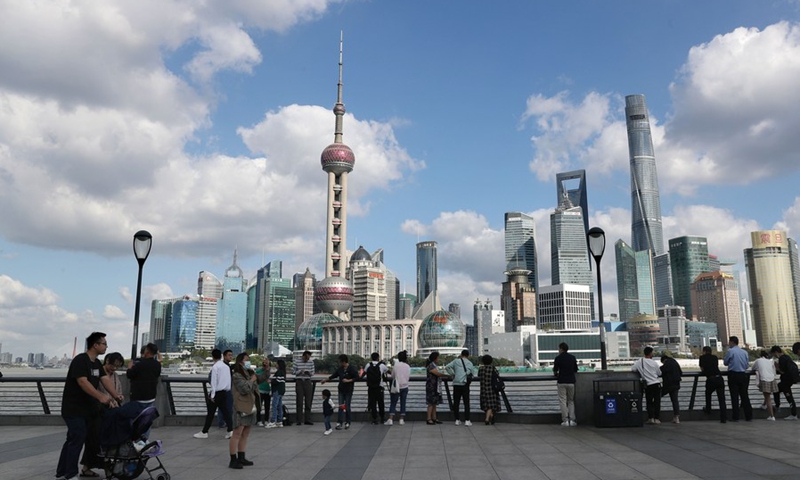Chinese State Councilor and Foreign Minister Qin Gang and Tesla founder Elon Musk met in Beijing on Tuesday, as a stream of foreign CEOs had visited China. This is happening as the world’s second largest economy strives toward high-level opening-up and enhance its attractiveness to foreign investment.
Qin Gang said China will continue to steadfastly promote high-level opening-up and is committed to creating a better market-oriented, legal, and international business environment for enterprises from various countries, including Tesla.
“China’s development is an opportunity for the world. A healthy, stable and constructive China-US relation is beneficial not only for China and the US, but also for the whole world,” Qin said.
Qin also used Tesla cars as a metaphor to describe the relations between China and the US, saying the two countries should “hit the brake” in a timely manner to avoid “dangerous driving” and push win-win cooperation.
Musk said Tesla objects to “decoupling” and is willing to further expand business in China, according to a statement published on the website of the Ministry of Foreign Affairs on Tuesday.
Chinese experts said along with a series of achievements China has made in attracting and stabilizing foreign direct investment (FDI), more and more foreign CEOs chose to be “physically in China” to ink deals. This shows the indisputable attractiveness of the Chinese market and the Chinese economy, despite the noises made by some Western media suggesting otherwise.
Musk flew in a private jet to China on Tuesday. The CEO of Tesla, which has the Chinese market contributing nearly 21 percent of its overall revenue in the first quarter of 2023, commissioned the Shanghai Gigafactory with a dance in the rain in Shanghai in 2019.
Musk has visited China many times. In 2018 and 2019, he was spotted by Chinese netizens eating pancake with crispy fried dough sheet, steamed buns with filling and hot pot in different Chinese cities.
Musk is not the only foreign CEO visiting China in recent days.
On Monday, Shanghai Mayor Gong Zheng met with Starbucks CEO Laxman Narasimhan and reassured the latter that Shanghai will continue to foster a market-oriented, law-based and international business environment.
Since China’s optimization of epidemic control measures, foreign company executives have formed an endless stream in visiting China to explore market opportunities, be close to customers and to gauge the market situation for themselves.
Rising confidence
An overwhelming number of surveyed foreign companies hold a satisfactory view toward China’s business environment, a fresh survey conducted by the China Council for the Promotion of International Trade (CCPIT) showed on Tuesday.
About 97 percent of the 600 foreign enterprises from 26 localities in China have expressed satisfaction over China’s policies concerning foreign investors since the fourth quarter of 2022, according to the survey.
Over 80 percent expect their investment yield in 2023 will keep up or improve from the 2022 levels, the survey showed, and over 90 percent of the surveyed expect the reading to keep up or improve in the next five years.
As the Chinese economy continues to demonstrate its vitality, foreign companies continue to be bullish on China’s economic development prospect and have a generally high satisfaction rate for China’s business environment, Wang Linjie, CCPIT spokesperson, told a regular press conference on Tuesday.
Hong Yong, an expert at the digital real economies integration Forum 50, told the Global Times on Tuesday that the bullish sentiment demonstrated by foreign firms is driven by multiple factors including an faster growth speed of domestic market compared with most international markets, continued commitment and support from the Chinese government for high-level opening-up, as well as the abundant skilled labor resources.
Hong predicted that the FDI will further increase in 2023 on top of last year’s high.
China has been stepping up efforts to attract foreign investment and aiming to better leverage the unique role of foreign capital in the synergy of domestic and international markets and resources.
With the gradual recovery of the Chinese economy in the coming months, its contribution to global economic growth may further increase, Tian Yun, a veteran economist, told the Global Times on Tuesday.
China will contribute 34.9 percent of the global growth, according to the IMF on May 11.
In this context, global capitals will certainly increase investment in China as the optimistic outlook on China and the growth of actual utilization of foreign investment in the first four months confirmed their commitment to the Chinese market, Tian said.
Foreign-invested companies have set up 11,000 companies in China during the first quarter, up 7.6 percent year-on-year, closing in on pre-COVID level, according to the State Administration for Market Regulation on Friday.
China’s FDI in the first four months of 2023 reached 499.46 billion yuan ($70.55 billion), up 2.2 percent year-on-year, data from China’s Ministry of Commerce (MOFCOM) showed on in May.
Hong said that foreign media reports to hype up a slowing foreign investment in China are biased and ungrounded.
“China is still one of the world’s largest recipients of FDI and has made remarkable progress in safeguarding the legitimate rights and interests of foreign investment and optimizing the business environment,” Hong said. He noted that foreign investors’ optimism about China’s economic prospects is not groundless, but based on the actual performance of the Chinese economy and the Chinese government’s policy preference.
Chinese experts also noted that legal actions taken against a number of foreign consultancy firms and the cybersecurity review on some foreign company’s products have been carried out in accordance with the law and are based on facts.
These should not be confused with or compared to the US’ broad crackdown on Chinese companies under the pretext of national security, they noted.
Magnet effect
China has rolled out multiple measures to open up wider to the world. Chinese experts said as the Chinese economy continue to shift toward a consumption-driven model, foreign companies will have a larger role to play and are bound to be attracted.
“We noticed the efforts by the Chinese government… And we are definitely interested in facilitating China’s energy transition by implementing our projects in green economy and low carbon sector,” Fabrice Fourcade, vice president of EDF Group, was quoted as saying in a statement the company sent to the Global Times.
For the next step, Tian believed it is important to accelerate the construction of a unified domestic market to further unleash the potential of domestic economic growth, which is of greater significance for attracting foreign investment.
(Global Times)




